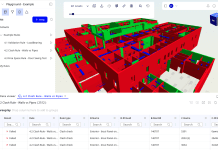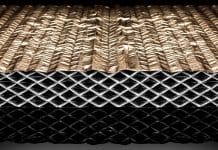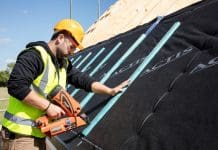IES delivered a 3D masterplanning and visualisation model, along with virtual testing and building performance optimisation, for Nanyang Technological University (NTU)’s 250-hectare flagship EcoCampus
Delivered in two phases, the project used IES’ innovative ICL (Intelligent Communities Lifecycle) technology to provide high-level visualisation and analysis of testbed energy reduction technologies on site, before delving into detailed simulation and calibrated modelling of 21 campus buildings.
NTU firstly wanted to understand, at the campus level, which testbed solutions were performing the best, and to identify the optimum scale and location for their deployment.
The EcoCampus initiative covers the whole of NTU’s 200-hectare campus and the adjoining 50-hectare JTC Corporation CleanTech Business Park. There are over 200 buildings on site with a 1.1m m² floor area.
IES and NTU worked together on this project in a highly symbiotic and collaborative relationship. Through on-site and offsite support, IES provided access to its latest ICL technology, alongside associated high-level training and consulting. Meanwhile, NTU has given valuable technology feedback and provided a large-scale, real-life implementation opportunity.
Phase 1 of the project concentrated on creating a masterplanning (iCD) model of the EcoCampus, complete with energy signatures for each building on the campus.
The model was accurate to 91% for total energy consumption and 97% for chiller energy consumption. A corresponding online cloud-based Campus Information Model (iCIM) for communication and engagement with campus staff and students was also created and connected to the masterplanning model for automatic updates.
The masterplanning model was then used as a baseline to simulate and analyse testbed technologies, ranging from improved thermal performance of the building envelope to lighting sensors, chiller optimisation and smart plugs that turn equipment off out of hours.

Overall, these combined measures reduced energy consumption across the campus by 10%, saving $3.9M and 8.2kt of carbon.
IES’ expertise in the analysis of building performance became even more essential as the project moved into Phase 2 – the implementation phase of the project – where the best solutions from the Phase 1 testbed were chosen and applied.
Using real operational data from utilities and NTU’s Building Management Systems (BMS), IES were able to assess and identify opportunities to achieve optimal performance in existing buildings across the campus, using its innovative Ci2 (Collect, Investigate, Compare, Invest) process.
During the Collect and Investigate stage, building information was gathered and operational data imported into IES’ operational data management and analysis tool, iSCAN, to investigate issues/faults across a selection of 21 buildings on the NTU campus. This brought to attention issues including: low and high CO2 levels, unstable off-coil temperatures, lower than expected return air temperatures, faulty energy consumption meters, and staff offices and meeting rooms temperature setting issues.
Virtual models were then created in the IES Virtual Environment (VE) for each of the 21 buildings and calibrated using the operational data. These closely calibrated models established an accurate baseline for the existing buildings in operation, enabling IES to Compare and determine potential savings for a range of technologies in the Invest stage.
A selection of new technologies relating to building envelope, lighting and occupancy sensors, plug load management and high-performing optimised chillers were simulated using the calibrated models to determine potential savings. The results demonstrated that, if installed in the buildings, these technologies could achieve 31% average energy savings and a total cost saving of approximately $4.7m.
“The possibility to quickly assess energy saving options through innovative technologies across the campus was a great value addition from this collaboration with IES.” – Nilesh Y. Jadhav, programme director, EcoCampus @NTU.
To find out more about IES and their new ICL technology, visit www.iesve.com/icl
https://www.iesve.com/ntu-singapore
Integrated Environmental Solutions LTD
Tel: +44 (0)141 945 8500
enquiries@iesve.com
Please note: this is a commercial profile.














